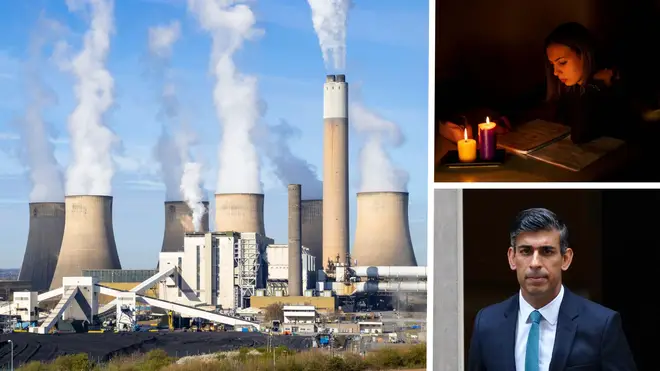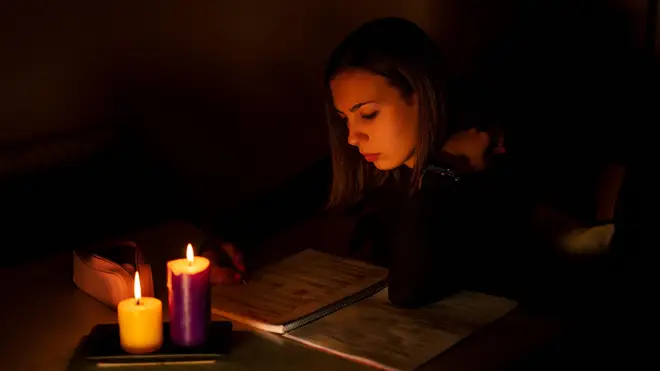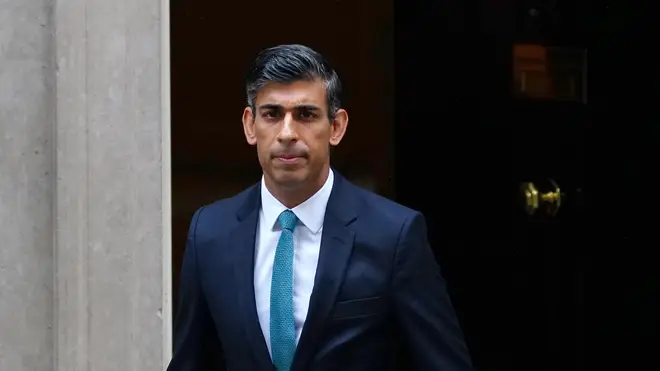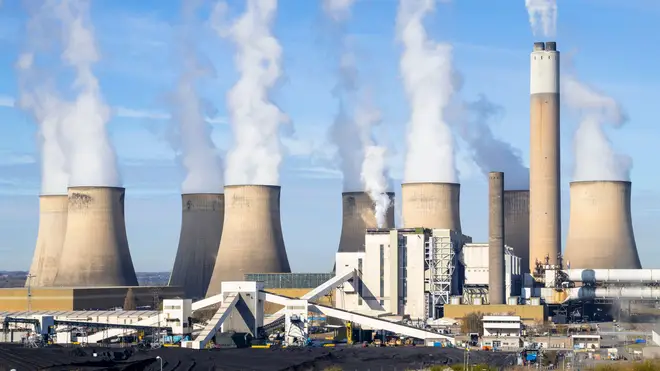
Paul Brand 10am - 12pm
2 November 2022, 08:08 | Updated: 2 November 2022, 08:25

Ministers have 'war gamed' secret emergency plans for a week-long winter blackout amid fears of an energy shortage.
"Official sensitive" Government documents have warned that food and water supplies, transport and communications could all be severely disrupted in a "reasonable worst-case scenario" set to last up to seven days, it is understood.
Whitehall officials are testing a secret plan - Programme Yarrow - to cope with the blackouts this winter, according to the Guardian.
It will prioritise getting food, water and shelter to the young and elderly, as well as those with caring responsibilities.
The plan was initially drawn up last year, before Vladimir Putin launched his invasion in Ukraine, which has since added to the worsening energy crisis.
Read more: 'Chaos costs lives': Greenpeace holds sit down protest in Parliament over soaring energy bills

The plans could be put in place if a hostile foreign power attacks underwater power cables.
It comes after the attack on the Nord Stream energy pipelines in the Baltic Sea, which has been widely blamed on Moscow.
Weather conditions could also impact the decision, with the Met Office warning of a colder-than-usual winter this year, putting even more pressure on gas and electricity supplies.
It is a step up from the potential three-hour blackouts outlined by the National Grid last month.
The plans suggest that 60 per cent of electricity demand will be met "between day 2 and day 7".
During that period, households and businesses will be given "intermittent access" to ration supply.
People will be given 24 hours' notice of a blackout going ahead, with the plan being published up to a week ahead on a rolling basis.


Ed Miliband, the shadow climate secretary, said: "All governments do contingency planning for worst-case scenarios but the truth is that we are vulnerable as a country as a direct consequence of a decade of failed Conservative energy policy.
"Banning onshore wind, slashing investment in energy efficiency, stalling nuclear and closing gas storage have led to higher bills and reliance on gas imports, leaving us more exposed to the impact of Putin’s use of energy as a geopolitical weapon."
It comes as Rishi Sunak is expected to expand the windfall tax on energy giants in a bid to raise billions.
He is understood to be considering several proposals including increasing the levy, extending the deadline and expanding its remit to include renewable energy generators.
Both BP and Shell have revealed a huge jump in profits in the latest quarter.
However, Shell said that it had not paid a windfall tax because it had made large investments in the UK, meaning it had made no profit here.